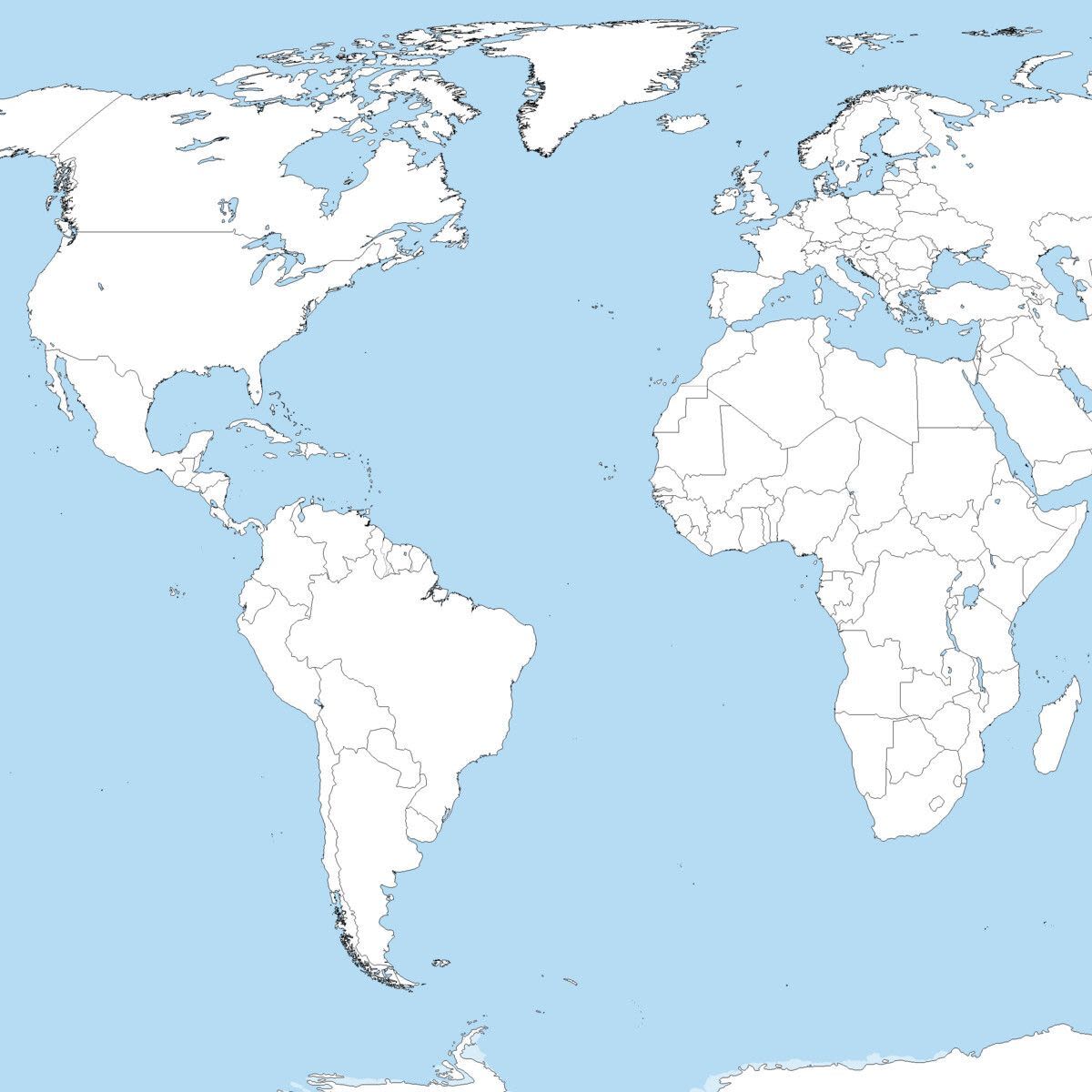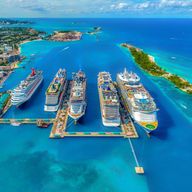

Regatta - 5/8/2025
The May 8, 2025 cruise on the Regatta departs from Kyoto Kobe Japan. On this 14 Night Jewels Of Japan & Korea (Kyoto Roundtrip) sailing, the ship will visit a total of 12 cruise port destinations, including its departure port. The Regatta sets sail on Thursday, May 8th and returns on Thursday, May 22nd.
Cruise Pricing
The graph below tracks historic price of the Regatta cruise ship departing May 8, 2025. The most recent price for this sailing starts at $10,198 ($729 per night) for an Inside Cabin. Compared to the average price of $7,128 ($510 per night), this represents a recent increase of 43%.
Use the buttons below to toggle between cabin types.
Cruise Itinerary
Itinerary
Regatta - May 8, 2025 - 14 Nights
| Day | Date | Port |
|---|---|---|
| 1 | May 8th | Kyoto Kobe Japan |
| 2 | May 8th | Kyoto Kobe Japan |
| 3 | May 10th | Hiroshima, Japan |
| 4 | May 11th | Busan (Pusan), South Korea |
| 5 | May 12th | At Sea |
| 6 | May 13th | Incheon (seoul). South Korea |
| 7 | May 14th | Jeju City, Jeju-Do, (cheju-Do), South Korea |
| 8 | May 15th | Sasebo, Nagasaki, Japan |
| 9 | May 16th | Kagoshima, Japan |
| 10 | May 17th | Miyazaki, Japan |
| 11 | May 18th | Kochi, Japan |
| 12 | May 19th | Nagoya, Japan |
| 13 | May 20th | Shimizu, Japan |
| 14 | May 21st | Tokyo, Japan |
| 15 | May 8th | Tokyo, Japan |
The Regatta sails on May 8, 2025 for a 14 Night Jewels Of Japan & Korea (Kyoto Roundtrip). The ship will depart the port of Kyoto Kobe Japan at N/A and will return to the port of Tokyo, Japan on May 22nd at N/A. During the 15-day journey, the Regatta will visit 11 additional ports and will spend 1 days at sea.
Itinerary Safety Score
Based on my comprehensive research of cruise port safety information, including recent crime reports, travel advisories, Global Peace Index rankings, and specific port security concerns, we've created a "safety score" for each cruise port stop. The overall rating below represents a combined score for your specific cruise itinerary.
Cruise Ship

Regatta
Oceania Cruise Line
The Regatta was built in 1998 and is among Oceania's 6 ships in its fleet. The Regatta is included in the cruise line's Regatta class. In the cruise ship stats below, you'll find the Regatta vs all other Oceania ships.
Cruise Ports
Kyoto, Japan, offers a cruise excursion from Kobe Port. Travelers explore Kinkaku-ji and Fushimi Inari Shrine. Excursions visit Arashiyama Bamboo Grove. Local markets sell kaiseki. The peak season, March to May, brings mild weather for city tours. Photography captures golden pavilions and torii gates. Dining onboard includes sushi, a Japanese favorite. Souvenirs, like kimono crafts, are sold in ship shops. Briefings cover Heian history. Light clothing and sun protection suit the temperate climate, while comfortable shoes enhance shrine walks. Kyoto’s cultural charm offers a vibrant Japanese stop. Cruise travelers enjoy a mix of historic temples and scenic groves, making Kyoto an engaging destination.
Kyoto, Japan, offers a cruise excursion from Kobe Port. Travelers explore Kinkaku-ji and Fushimi Inari Shrine. Excursions visit Arashiyama Bamboo Grove. Local markets sell kaiseki. The peak season, March to May, brings mild weather for city tours. Photography captures golden pavilions and torii gates. Dining onboard includes sushi, a Japanese favorite. Souvenirs, like kimono crafts, are sold in ship shops. Briefings cover Heian history. Light clothing and sun protection suit the temperate climate, while comfortable shoes enhance shrine walks. Kyoto’s cultural charm offers a vibrant Japanese stop. Cruise travelers enjoy a mix of historic temples and scenic groves, making Kyoto an engaging destination.
Hiroshima, Japan, has docking at Hiroshima Port. Travelers explore Peace Memorial Park and Atomic Bomb Dome. Excursions visit Miyajima’s floating Itsukushima Shrine. Local markets sell okonomiyaki. The peak season, March to May, brings cherry blossoms. Photography captures historic sites and island shrines. Dining onboard includes Hiroshima-style okonomiyaki. Souvenirs, like peace cranes, are sold in ship shops. Briefings cover WWII history. Light layers suit the temperate climate. Comfortable shoes enhance park walks. Hiroshima’s poignant history offers a profound Japanese stop, blending peace advocacy with cultural heritage.
Busan, South Korea, in the southeast, sits on the Korea Strait, facing the Sea of Japan. The port is near Jagalchi Fish Market, where fresh seafood is sold daily. Haeundae Beach offers urban waterfront access, while Beomeosa Temple, in the forested hills, provides cultural history. The Gamcheon Culture Village, with colorful houses, draws visitors for its art and narrow alleys. Busan’s port history as a trading hub is evident in its maritime museum. The nearby Nakdong River Estuary is a birdwatching site, and the city’s coastal cliffs offer walking trails with ocean views.
Take advantage of the many on board activites during your day at sea. You'll have more than enough to fill your day!
Incheon, South Korea, has docking at Incheon Port with excursions to Seoul. Travelers explore Gyeongbokgung Palace and Myeongdong markets. Excursions visit DMZ’s historic sites. Local markets sell kimchi. The peak season, April to June, brings mild weather. Photography captures palaces and urban skylines. Dining onboard includes bulgogi, a Korean favorite. Souvenirs, like hanbok dolls, are sold in ship shops. Briefings cover Korean history. Light layers suit the temperate climate. Comfortable shoes enhance city tours. Incheon’s access to Seoul offers a vibrant South Korean stop, blending culture with modern energy.
Jeju City, South Korea, has docking at Jeju Port. Travelers explore Seongsan Ilchulbong’s volcanic crater. Excursions visit Manjanggul Lava Tube. Local markets sell tangerines. The peak season, April to June, brings mild weather. Photography captures volcanic landscapes and coastal vistas. Dining onboard includes haemul jeongol, a seafood hotpot. Souvenirs, like lava stone crafts, are sold in ship shops. Briefings cover Jeju’s geology. Light clothing suits the temperate climate. Sturdy shoes enhance hikes. Jeju City’s volcanic beauty offers a vibrant South Korean stop, immersing travelers in its natural wonders.
Sasebo, Nagasaki, Japan, offers docking at Sasebo Port. Travelers explore Huis Ten Bosch and Kujukushima Islands. Excursions include snorkeling in Pearl Sea. Local markets sell champon. The peak season, April to October, brings mild weather for coastal tours. Photography captures Dutch-themed parks and Kyushu vistas. Dining onboard includes tonkotsu ramen, a Japanese favorite. Souvenirs, like pearl crafts, are sold in ship shops. Briefings cover Nagasaki history. Light clothing and sun protection suit the temperate climate, while water shoes enhance island exploration. Sasebo’s coastal charm offers a vibrant Japanese stop. Cruise travelers enjoy a mix of cultural parks and scenic islands, making Sasebo an engaging destination for exploration.
Kagoshima, Japan, has docking at Kagoshima Port. Travelers explore Sakurajima volcano’s active trails. Excursions visit Sengan-en Garden’s historic grounds. Local markets sell shochu. The peak season, March to May, brings cherry blossoms. Photography captures volcanic landscapes and coastal vistas. Dining onboard includes kurobuta pork, a Kagoshima specialty. Souvenirs, like ceramic crafts, are sold in ship shops. Briefings cover Kyushu’s history. Light layers suit the temperate climate. Sturdy shoes enhance volcano hikes. Kagoshima’s volcanic beauty offers a dynamic Japanese stop, blending nature with cultural heritage.
Miyazaki, Japan, provides docking at Miyazaki Port. Travelers explore Aoshima Island’s “Devil’s Washboard” rock formations and Miyazaki-jingu Shrine. Excursions visit Udo Shrine’s cliffside caves. Local markets sell chicken nanban. The peak season, March to May, brings mild weather and cherry blossoms. Photography captures coastal geology and Shinto shrines. Dining onboard includes katsu curry, a Japanese favorite. Souvenirs, like obi sashes, are sold in ship shops. Briefings cover Kyushu’s history. Light layers suit the temperate climate, while comfortable shoes enhance shrine and coastal walks. Miyazaki’s blend of natural beauty and spiritual sites offers a serene Japanese stop. Cruise travelers enjoy a mix of unique geological formations, Shinto heritage, and coastal charm, making Miyazaki a delightful destination for exploring Japan’s cultural and natural treasures in Kyushu.
Kochi, Japan, has docking at Kochi Port. Travelers explore Kochi Castle’s samurai history. Excursions visit Katsurahama Beach and Ryugado Cave. Local markets sell bonito flakes. The peak season, March to May, brings mild weather. Photography captures castle views and Pacific shores. Dining onboard includes katsuo tataki, a local seared tuna. Souvenirs, like yosakoi crafts, are sold in ship shops. Briefings cover Shikoku’s history. Light layers suit the temperate climate. Comfortable shoes enhance castle tours. Kochi’s coastal heritage offers a serene Japanese stop, blending samurai history with scenic beauty.
Nagoya, Japan, provides docking at Nagoya Port. Travelers explore Nagoya Castle and Atsuta Shrine. Excursions visit Toyota’s factory museum for automotive history. Local markets sell kishimen noodles. The peak season, March to May, brings cherry blossoms and mild weather. Photography captures samurai castles and urban skylines. Dining onboard includes hitsumabushi, a Nagoya eel dish. Souvenirs, like noren curtains, are sold in ship shops. Briefings cover Aichi’s industrial history. Light layers suit the temperate climate, while comfortable shoes enhance castle walks. Nagoya’s blend of history and modernity offers a vibrant Japanese stop. Cruise travelers enjoy a mix of samurai heritage, spiritual sites, and industrial innovation, making Nagoya an engaging destination for exploring Japan’s cultural and technological richness in the Chubu region.
Shimizu, Japan, offers docking at Shimizu Port. Travelers explore Mount Fuji viewpoints and Nihondaira’s tea gardens. Excursions visit Shizuoka’s Toro Ruins. Local markets sell wasabi. The peak season, April to October, brings mild weather for coastal tours. Photography captures Fuji’s slopes and Suruga Bay vistas. Dining onboard includes unagi, a Japanese favorite. Souvenirs, like tea crafts, are sold in ship shops. Briefings cover Shizuoka history. Light clothing and sun protection suit the temperate climate, while comfortable shoes enhance garden walks. Shimizu’s scenic charm offers a vibrant Japanese stop. Cruise travelers enjoy a mix of natural beauty and cultural heritage, making Shimizu an engaging destination for exploring Japan’s Fuji region.
Tolanaro (Fort Dauphin), Madagascar, offers docking at Tolanaro Port. Travelers explore Nahampoana Reserve and Libanona Beach. Excursions include lemur-watching at Berenty Reserve. Local markets sell zebu curry. The peak season, May to October, brings dry weather for coastal tours. Photography captures rainforests and Indian Ocean vistas. Dining onboard includes romazava, a Malagasy favorite. Souvenirs, like raffia crafts, are sold in ship shops. Briefings cover Tsitongambarika history. Light clothing and sun protection suit the tropical climate, while sturdy shoes enhance reserve walks. Tolanaro’s natural allure offers a vibrant Malagasy stop. Cruise travelers enjoy a mix of unique wildlife and scenic beaches, making Tolanaro an engaging destination for exploration.
Tolanaro (Fort Dauphin), Madagascar, offers docking at Tolanaro Port. Travelers explore Nahampoana Reserve and Libanona Beach. Excursions include lemur-watching at Berenty Reserve. Local markets sell zebu curry. The peak season, May to October, brings dry weather for coastal tours. Photography captures rainforests and Indian Ocean vistas. Dining onboard includes romazava, a Malagasy favorite. Souvenirs, like raffia crafts, are sold in ship shops. Briefings cover Tsitongambarika history. Light clothing and sun protection suit the tropical climate, while sturdy shoes enhance reserve walks. Tolanaro’s natural allure offers a vibrant Malagasy stop. Cruise travelers enjoy a mix of unique wildlife and scenic beaches, making Tolanaro an engaging destination for exploration.